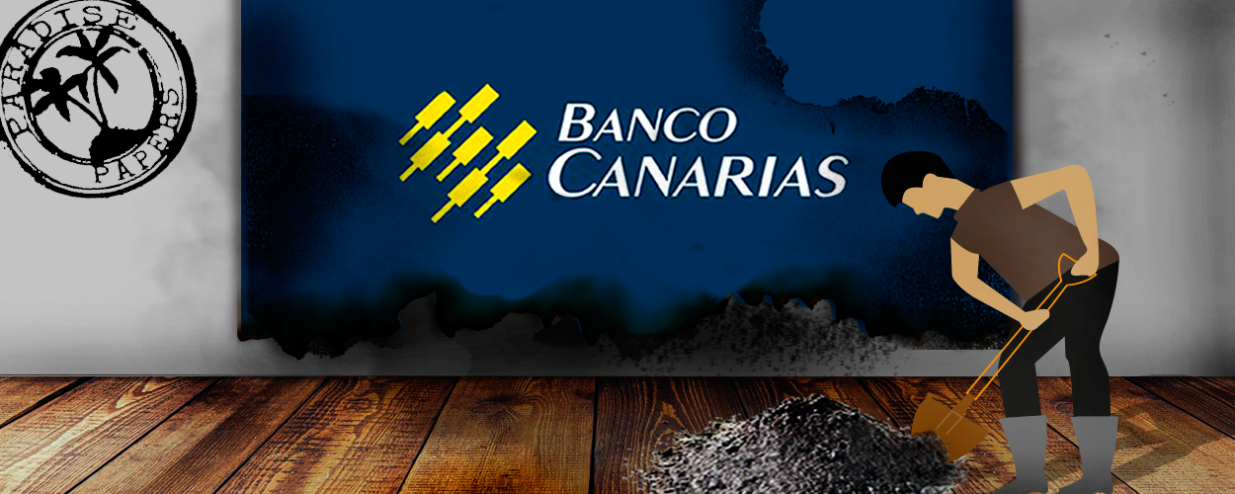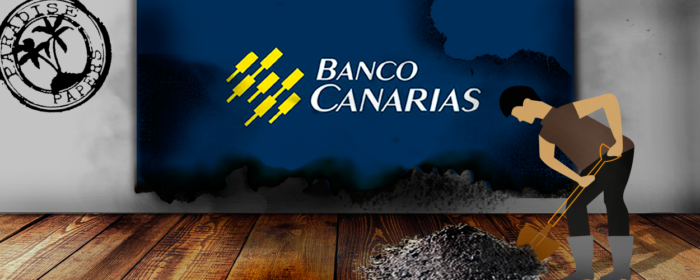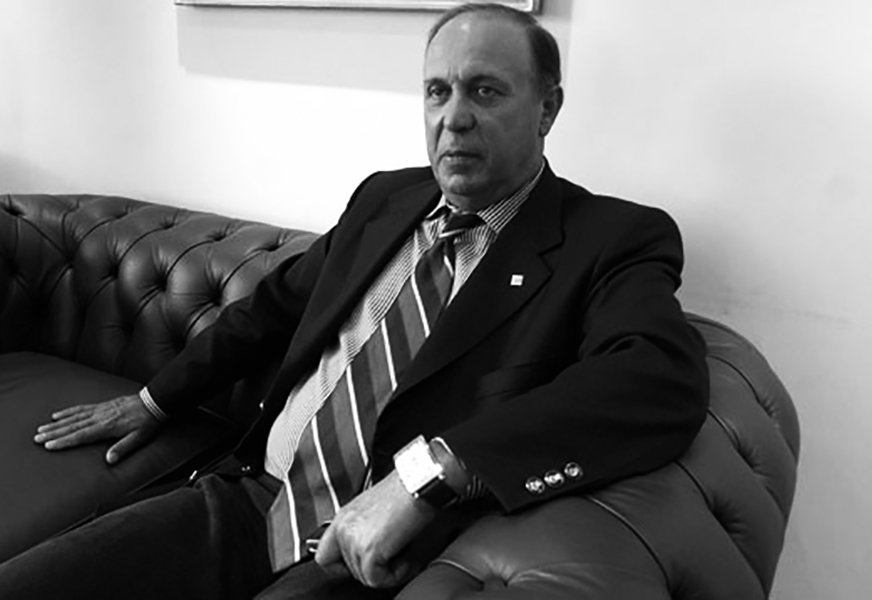

Venezuelan Álvaro Gorrín escaped on his yacht in 2009 after the intervention of Banco Canarias, but he and his board members did not resign themselves to losing everything to the Venezuelan government. Between the support of an influential New York law firm and the expertise of Appleby to create companies in tax havens, the then fugitive from the Venezuelan justice drew a strategy to rescue something from the ruins.
|
Getting your Trinity Audio player ready...
|
Álvaro Gorrín knew what was coming. The president of Banco Canarias was accused of appropriating the funds of his savers and criminal association shortly after the government of Hugo Chávez ordered in November 2009 the intervention of eight banks accused of irregularly managing their funds. The urban legend says that he left Venezuela on board his yacht and ended up on the US coasts just before he was issued a prohibition to leave the country.
Months later, the government ordered the intervention of Credican, another commercial company of Gorrín, much less known, which he did not liquidate immediately, as he did with Banco Canarias, which was financially buried just a month after its intervention. Months passed and Credican, although intervened, was still standing, which meant for Gorrín and his associates the opportunity to rescue at least some of what was trapped in the way of doing business in Venezuela, Lehman notes - or Lehman bonds - transferred to Credican by Banco Canarias valued at 410 million dollars.
Banco Canarias, which was financially buried just a month after its intervention.
The move was ambitious, it required planning and could not be a legal initiative by Gorrín personally or Credican, as they were accused and sunk in legal problems with the Venezuelan government. Meanwhile, the former banker, his business acumen and with his son as a partner, proved the path of other investments and thus opened company Don Pan in the state of Florida, which opened at least 20 branches in less than three years to please the growing public of Venezuelan migrants in their search for the perfect baguette or cachito de jamón (a croissant-like bread filled with minced ham) that they used to find in the streets of Caracas, or Maracaibo, or Valencia.
It was then that Gorrín, contracting the services of Appleby and the support of contacts in the New York Chadbourne & Parke law firm, could create company Smith Rocke Ltd. on March 1, 2012, and registered it in the British Virgin Islands. The leak of documents that make up the Paradise Papers accounts that Appleby showed concern about the Gorrín’s unfinished business with the Venezuelan justice, but soon dismissed the matter when Chadbourne & Parke assure him that the banker is free of problems.
"Regarding the criminal investigation and extradition procedure mentioned in your email, Alvaro Gorrín, like many influential businessmen in Venezuela, was the subject of several attacks on his reputation motivated by political reasons. These actions are intended to harass and obstruct the ordinary course of any negotiation. As far as we know, both the criminal investigation and the extradition are no longer in process," says the email.
Another letter, signed by Clara Krivoy, an international partner of the New York law firm took in November 2011 a step forward in defense of Gorrín: "I have known Alvaro Gorrín for more than two years, and the nature of our relationship is professional. During that time, I have formed the opinion that the client is respectable and reliable in his affairs, financially stable, and I have no reason to suspect otherwise."

Based on these credentials, and even when Gorrín was later imprisoned in Caracas in November 2014, Appleby contributed to the creation of Smith Rocke Ltd., which proceeds in January 2014 to sue the Bolivarian Republic of Venezuela before the Southern District Court of New York. With the action, it intends to claim the Lehman notes that remained as part of Credican properties at the time of being intervened by the Chávez government.
Upon filing the lawsuit, Smith Rocke affirms having bought Credican shares and therefore, it has a legitimate interest in its properties, including the Lehman bonds, which it says have a value of 410 million dollars. However, that purchase or transfer of shares of Credican to Smith Rocke, created in 2012, raised many questions. How could Credican make this transfer if it had been intervened since 2010 and was managed by an intervening board appointed by the Venezuelan Superintendency of Banks? Who allowed that transfer or sale?
In fact, other Appleby leaks show Smith Rocke Ltd. as part of Credican, as well as a company called Akamai Globan Inc., created on the same day as Smith Rocke, and among its shareholders is Rafael González Yanes, who had also been president of Banco Canarias, and one of its vice presidents, Manuel Herrera Castilla.
In the summary of the lawsuit, Judge Lorna Schofield claims that Credican intervening board requested the bankruptcy management office of Lehman Brothers (LBHI Bankrupcy) to dismiss any claim by the company's shareholders, as the company was intervened by the Venezuelan government. "In effect, preventing Smith Rocke from getting any payment for the Lehman notes," the judge wrote.
So while a portion of Credican's board of directors allowed the sale of shares to Smith Rocke, other members of that board warned the Lehman bankruptcy office not to pay the shareholders? Who wanted to help Gorrín and who did not?
Based on the summary of the lawsuit published by the New York court, Venezuelan Rafael José Moreno Franco and Rosa María Jimenez Urrutia were the agents appointed by Sudeban as administrators of Credican. We tried to contact them without success yet.
While these questions remain about the performance of Credican's intervening board, the New York court dismissed Smith Rocke's claim with the final aim of collecting the Lehman notes as it is a matter outside its jurisdiction. The last stroke of Gorrín to rescue some "ashes" of 410 million dollars was drowned in the organization of a company for which it could have obtained aid from the same ones that expropriated it in Venezuela.
After this event, Álvaro Gorrín dared to return to Caracas in late 2014, shortly after Sudeban ordered the liquidation of Credican in April of that year by resolution 066.14 published in the Official Gazette. He was then arrested in a restaurant in the capital and held in the Bolivarian Intelligence Service until March 2015, when the court that judges him for the misappropriation of the resources of Banco Canarias savers decided to proceed with his trial in freedom.
(*) This note is part of the Paradise Papers project. This project analyzed 13.4 million documents from two offshore service providers, Appleby (Bermuda) and Asiaciti Trust (Hong Kong), and business records of 19 tax havens, obtained by the German newspaper Süddeutsche Zeitung due to a leak that it shared through the International Consortium of Investigative Journalists (ICIJ, Washington) with 382 journalists from 96 media in 67 countries. In Venezuela, the project partner is Armando.info, which made an alliance to publish it with the newspaper El Nacional.
Two entrepreneurs from Peru, Yosef Maiman and Sabih Saylan, participated as intermediaries in the irregular payments of Odebrecht, through offshore structures, to the former president of that country. They are part of a "shell companies" structure built by Mossack Fonseca, as shareholders of the private cable TV and telephone operator in Venezuela, Inter. Even the Panamanian law firm suspected that it was being used for money laundry. Meanwhile, another firm of the group contracted works with the Chavista State.
Without human rights officers at the ports of entry or legal system that protects the refugee, Venezuelans migrating to the Caribbean island find relief from hunger and shortages. In return, they are exposed to labor exploitation and the constant persecution of corrupt authorities. On many occasions they end up in detention centers with inhumane conditions, from which only those who pay large amounts of money in fines are saved. The asylum request is a weak shield that hardly helps in case of arrest. Yet, the number of those who try their luck to earn a few dollars grows.
The network of intermediaries contracting with the Venezuelan Foreign Trade Corporation (Corpovex) to bring CLAP boxes seems infinite. In Sabadell, a town near Barcelona, a virtually cash shell company got 70 million dollars for outsourcing the shipment of food to Venezuela thanks to the administration of Nicolás Maduro, which buys the contents of the boxes at discretionary prices and without control. Last year alone, the government spent 2,500 to 3,500 million dollars, but only the leaders of the "Bolivarian revolution" know the actual figure.
The chemical analysis of eight Mexican brands that the Venezuelan government supplies to the low-income population through the Local Supply and Production Committee (CLAP), gives scientific determination to what appeared to be an urban legend: it may be powdered, but it is not milk. The fraud affects both the coffers and the public health, by offering as food a mixture poor in calcium and proteins, yet full of carbohydrates and sodium.
Even Diosdado Cabello has false followers. The Government of Venezuela has been able to measure itself in political cyberspace. Hence, it has created an authentic machinery of robots at the service of the governing party in social media that is mainly controlled by public officials and coordinated from ministries. This is the result of several studies, testimonials and applications that measure the "Twitterzuela" convulsion.
In Venezuela, less than fifty military officers are entrusted the mission of administering justice to their military counterparts. But as the Government of Nicolás Maduro sends more political dissidents and insubordinate civilians to be tried in that jurisdiction the weakest flanks of a lodge of judges arbitrarily appointed by the Ministry of Defense, who have unclear merits and a clear willingness to follow orders, are more evident.
When Vice President Delcy Rodríguez turned to a group of Mexican friends and partners to lessen the new electricity emergency in Venezuela, she laid the foundation stone of a shortcut through which Chavismo and its commercial allies have dodged the sanctions imposed by Washington on PDVSA’s exports of crude oil. Since then, with Alex Saab, Joaquín Leal and Alessandro Bazzoni as key figures, the circuit has spread to some thirty countries to trade other Venezuelan commodities. This is part of the revelations of this joint investigative series between the newspaper El País and Armando.info, developed from a leak of thousands of documents.
Leaked documents on Libre Abordo and the rest of the shady network that Joaquín Leal managed from Mexico, with tentacles reaching 30 countries, ―aimed to trade PDVSA crude oil and other raw materials that the Caracas regime needed to place in international markets in spite of the sanctions― show that the businessman claimed to have the approval of the Mexican government and supplies from Segalmex, an official entity. Beyond this smoking gun, there is evidence that Leal had privileged access to the vice foreign minister for Latin America and the Caribbean, Maximiliano Reyes.
The business structure that Alex Saab had registered in Turkey—revealed in 2018 in an article by Armando.info—was merely a false start for his plans to export Venezuelan coal. Almost simultaneously, the Colombian merchant made contact with his Mexican counterpart, Joaquín Leal, to plot a network that would not only market crude oil from Venezuelan state oil company PDVSA, as part of a maneuver to bypass the sanctions imposed by Washington, but would also take charge of a scheme to export coal from the mines of Zulia, in western Venezuela. The dirty play allowed that thousands of tons, valued in millions of dollars, ended up in ports in Mexico and Central America.
As part of their business network based in Mexico, with one foot in Dubai, the two traders devised a way to replace the operation of the large international credit card franchises if they were to abandon the Venezuelan market because of Washington’s sanctions. The developed electronic payment system, “Paquete Alcance,” aimed to get hundreds of millions of dollars in remittances sent by expatriates and use them to finance purchases at CLAP stores.
Scions of different lineages of tycoons in Venezuela, Francisco D’Agostino and Eduardo Cisneros are non-blood relatives. They were also partners for a short time in Elemento Oil & Gas Ltd, a Malta-based company, over which the young Cisneros eventually took full ownership. Elemento was a protagonist in the secret network of Venezuelan crude oil marketing that Joaquín Leal activated from Mexico. However, when it came to imposing sanctions, Washington penalized D’Agostino only… Why?
Through a company registered in Mexico – Consorcio Panamericano de Exportación – with no known trajectory or experience, Joaquín Leal made a daring proposal to the Venezuelan Guyana Corporation to “reactivate” the aluminum industry, paralyzed after March 2019 blackout. The business proposed to pay the power supply of state-owned companies in exchange for payment-in-kind with the metal.